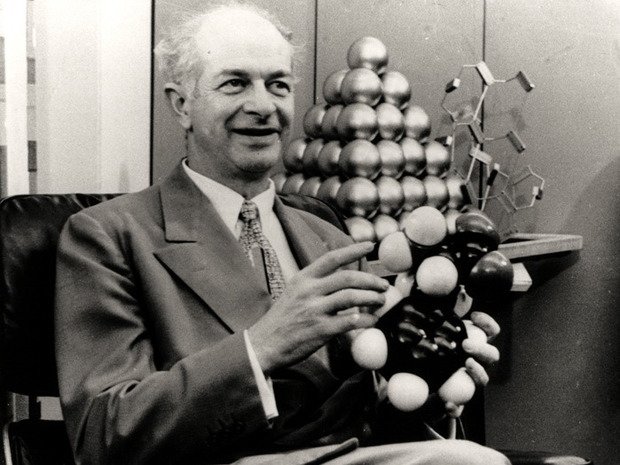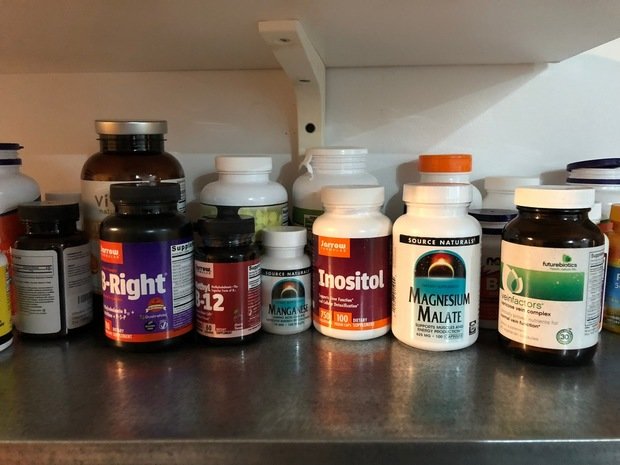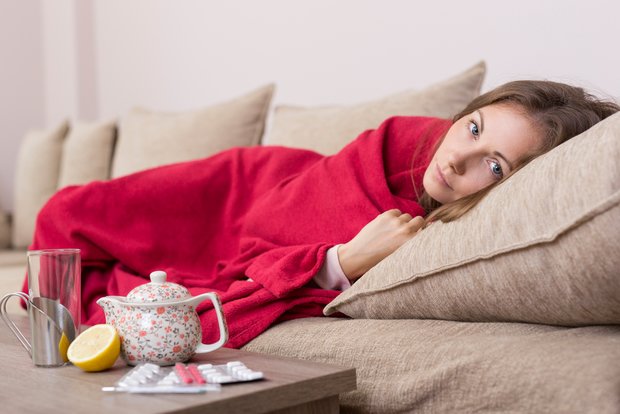''Health maintenance has nothing to do with the barbarity called biohacking''
Anton Rodionov about the ''eternal life pill'' and consequences of ''hacking'' your own organism
Why is everyone talking about biohacking? What are the real consequences of ''hacking'' your own organism? How much is eternal life? Is it possible to set up your regime to live for 300 years? Candidate of Medical Sciences, board-certified cardiologist, member of the Interregional Society for Evidence Based Medicine in Moscow Anton Rodionov answered these and other questions of Realnoe Vremya.
''There have always been people investing in their own health''
Mr Rodionov, what do you associate the recently grown popularity of such a trend as biohacking with? Humans' aspiration to take control over their own organisms' internal processes to, roughly speaking, cheat nature is more than a century old. But people began to talk about it several years ago much more.
I wouldn't say the popularity of biohacking has grown much. Rather, the popularity of its discussion in the mass media has increased. It's quite obvious. Any newsworthy information inevitably generates discussions in social media and the press. 32-year-old Russian billionaire's publication last year who told how he spent $200,000 to ''improve his health'' took its toll.
Actually, there have always been people investing in their own health. Some of them are etched on people's memory, for instance, Nobel laureate Linus Pauling daily taking megadoses of ascorbic acid or another Nobel laureate Ilya Mechnikov who supposed that organism's ageing is linked with the absorption of toxins in the bowel and who was going to undergo surgery to have his bowel removed.
Have you noticed in general that the topic of individual health has gained in popularity?
Of course. I remember well my American friends telling me as early as 15 years ago: ''Anton, the wellness industry is developing in the USA full steam, and people have money, they want to invest it in longevity''. The level of life in big Russian cities has been obviously higher than it was some 20 years ago. It goes without saying that any sensible person understands you can't take money to the grave with you, and if you don't invest to stay healthy, then you will have to spend to cure diseases.
However, individual health maintenance has nothing to do with the barbarity called biohacking. Simple prevention measures are well known and banal – rational nutrition, sufficient physical activity, smoke-free atmosphere, limited alcohol consumption. If there is a necessity to take medication, they are prescribed for something, for example, to lower arterial pressure.

''Actually, there have always been people investing in their own health. Some of them are etched on people's memory, for instance, Nobel laureate Linus Pauling daily taking megadoses of ascorbic acid.'' Photo: americansights.ru
Some biohackers criticise the Russian medical system for being allegedly designed to cure the last stages, not preventing ageing or impeding a disease from developing. Do you agree with it?
We can treat the concept of mass screening (I see many readers have a sceptic smile) in different ways. But the system of early detection of risk factors at the state level anyway exists. Commercial clinics en masse offer trendy check-ups – in fact, it's the same mass screening but with the client's money. So if a person wants to learn his or her risk factors, to calculate a vascular age and sometimes get quite sensible recommendations, it's just enough to go to the closest polyclinic or health centre. It's important to keep in mind that extra check-ups are often an unnecessary headache. From a perspective of biomedical statistics, if a person does 20 accidental trials, the results of one of them can be over the norm. An attempt to correct every laboratory abnormality will inevitably lead to unjustified treatment.
What stage is biohacking in Russia in now from the point of view of doctors' involvement? Are there specialists who are ready to follow this process and provide consultations? The thing is that for a layman the situation looks the following way: Russian scientists and medics criticise biohacking in most cases (but constructively), while overseas specialists willingly delve into this topic and actively work with people hacking their own organism. Is it the case of a more progressive approach or timely spotted opportunity to earn a lot of money?
One shouldn't think that progressive overseas doctors are making ''eternal life cocktails'' around the clock. Yes, telomere caps are studied in laboratories (telomeres are parts of chromosome located at the end that supposedly impede a cell from ageing. Some division cycles later, they begin deteriorating), but it's very early for this research to be applied in practice. On the other hand, it's not hard to find a ''thinking doctor'' in any country who will take up an experiment with the moneybags for a good sum of money.
I put the words ''thinking doctor'' inside quotation marks for a reason. Here we don't talk about a professional, but a specialist with medical education who thinks he is the smartest one and only knowledge of pharmacology allow him to do an experiment on a patient without being punished. A contemporary paradigm in medicine is a necessity to prove the effectiveness and safety of any interference. Otherwise, it's an experiment on a person, which is at least unethical.
''It's utopia to cheat systematically important laws of nature''
As for money, do you think that biohacking is what only the rich do?
Indeed, not everyone can afford to maintain a personal doctor for pseudoscientific fun. On the other hand, nobody impedes people from looking from recipes for ''eternal youth'' on the Internet and sink into an exciting adventure. A person just has to find a prescription for some medication.

''One shouldn't think that progressive overseas doctors are making 'eternal life cocktails' around the clock <...> On the other hand, it's not hard to find a 'thinking doctor' in any country who will take on an experiment with the moneybags for a good sum of money.'' Photo: aif.ru
How much time will it take contemporary science to discover the secret of eternal youth/life? Is it possible to set up a regime of life in a way to live 200-300 years?
As much as it will take to invent the perpetual motion machine. A person is part of a very complicated ecosystem of the planet, as soon as its number becomes ''too big'', the feedback mechanism will work. It seems to us that we're so smart and up there to win many diseases. Indeed, we won smallpox, the creation of antibiotics allowed us to change the epidemiology of bacterial infections… But new viruses, for instance, HIV appeared at the same time. We started to do a lot of research on stem cells but quickly understood that there is a fine line between a stem cell and a cancer cell. It's utopia to cheat systematically important laws of nature.
Can we equate a healthy lifestyle with biohacking? Is it true that one of the main differences is that biohacking tools aren't compatible with the concept of a healthy lifestyle?
It's probably different concepts, though it seems that professional biohackers don't neglect standard healthy lifestyle recommendations. If we understand biohacking as combined drug treatment, it might turn out completely not beneficial.
Generally speaking, any extremity is bad. For instance, there is such a sect of ''keto diet witnesses''. Apologists began it with treating severe epilepsy where it can suit, but then they got so keen on it that began to propagate the keto diet as panacea, though it became known a long time ago that hydrocarbon-free diets aren't good at all.
''It's not rocket science to 'hack' the organism, it's harder to 'go back'''
I would like to talk about the basic rules biohackers stick to in most cases. First of all, it's about taking medication. In pursuit of perfect results, biohackers consumer anti-depressants, nootropics and many other things, moreover, simultaneously. How do you assess such an approach? What are the risks?
In my opinion, it's biohacking's Achilles heel. All medications, even in low doses, may have side effects, including delayed. Any medication before appearing in the market covers a long road of clinical trials, moreover, any new indication for use is studied separately. Recommendations sometimes change when new scientific data appears. Let's say the whole world has just recently been taking aspirin to prevent heart attacks, now it's considered harmful, as aspirin is very weak in preventing heart attacks, though the risk of bleeding increases.
There is another problem. The interaction of several drugs that are taken simultaneously is always a lottery. Fifth-grade medical students are taught clinical pharmacology; analysis of drug interaction is the most difficult part of this course. So biohacking risks aren't a possibility of unpredictable delayed side effects that nobody will ever manage to calculate. This also concerns psychotropic medications.
Previously, in one of the interviews, you said that simultaneous intake of several serious drugs might bring to have a ''pathologically good mood' but you didn't explain what it was fraught with for a person. Could you tell about this occurrence?
Everything is simple. Again, it's impossible to cheat nature. More precisely, it can be cheated for some time, but then you will have to pay. Everyone, of course, has heard of mysterious drugs to keep militaries' spirits and performance up. Such psychostimulants do exist, but they are prohibited in legal circulation. Delayed reaction inevitably comes after stimulating psyche. You can't lash a cornered horse forever.

''Biohacking risks aren't a possibility of unpredictable delayed side effects that nobody will ever manage to calculate. This also concerns psychotropic medications.'' Photo: vc.ru
Should one count on nootropics to improve one's personal effectiveness?
Nootropics are literally translated as ''making an impact on mind''. This term was invented 45 years ago for piracetam, which was then considered to improve performance, memory and other processes like higher nervous activity. Follow-up studies suggested that its effectiveness was very exaggerated. Now it's seriously prescribed only for certain types of epilepsy in very high doses. Russian Fenotropil, which substituted it, really improved performance for a short time (students liked to take it before exams), but it turned out unsafe. And as far as we remember, it has been recently banned from taking.
What do you think about the spread consumption of psychedelic drugs (at least in Silicon Valley) to ''hack'' your own organism? So-called microdoses are spread in IT communities. Has its effectiveness been proved?
It's not rocket science to ''hack'' the organism, it's harder to ''go back''. Drugs are still drugs even in micro doses.
''Biohackers and hypochondriacs have a lot in common''
Biohackers often turn to fasting as a therapy (this practice is quite spread in general). Is it more harmful or beneficial for the organism from a perspective of medicine?
Fasting as therapy is an oxymoron. Refusing food ''as therapy'' is like hammering your fingers to improve health. We won't see a word about fasting to improve health in a decent medical guide (except in the part History of Medicine). Low-calorie nutrition systems are applied even when fighting severe obesity, not fasting. Supporters of this barbarity, as a rule, attract followers with slim theories where the word ''toxins'' one should get rid of is compulsorily mentioned. Let's be clear on this: toxins exist only metallurgy and mining. A human doesn't have toxins.
There is a variety of modifications of nutrition for different diseases, sometimes they are evidence based, sometimes they are unreasonably cruel. But none of them suggests fasting, besides some surgical emergencies, even in such a case when nutrients are injected through a drip.
What about psychological consequences of biohacking? I find it hard to believe that the consumption of tens of drugs without prescription, fasting, constant identification of biomarkers and an attempt to reach the ideal level won't take its toll on a person's mental health.
Me too. As the saying goes, ''We eat to live, but we don't live to eat''. When a young person constantly thinks about his or her own health, in my opinion, it's a sign of mental disorder. There is such a term as ''hypochondria'', health anxiety in psychiatry. It's a state in which a patient constantly looks for diseases he might have, pays attention to every symptom, does plenty of analyses… while life passes by.
Of course, it's not about biohackers. They do look like healthy, successful and positive people. Their external message is not to look for diseases but postpone their appearance to an uncertain future. It's a good idea at first sight. Nevertheless, it seems to me that biohackers and hypochondriacs have a lot in common.

''There is such a term as ''hypochondria'', health anxiety in psychiatry. It's a state in which a patient constantly looks for diseases he might have, pays attention to every symptom, does plenty of analyses… while life passes by.'' Photo: zdorovieinfo.ru
Mr Rodionov, could you, in conclusion, give a couple of advice to people who want to prolong their life but doubt if they should choose biohacking? How to improve your effectiveness without a pile of pills? How to stay young without exhausting fasting and monthly blood tests?
To tell the truth, I don't feel I am an honourable old man who is competent enough to give advice. Neither do I know answers to many questions.
Alongside traditional banal recommendations – no smoking, no abusive alcohol consumption, active lifestyle, weight control and so on – I would remind people of psychological ease. The definition of health suggested by the WHO includes not only the absence of disease but also the state of physical and psychological ease for a reason. So psychic, psychological ease depends on us in many ways, on the environment we create for ourselves, the job we find, the leisure time we make up. For instance, I love travelling very much. There was an old Soviet song with the words: ''Old age won't find me at home''. This is my biohacking. This time, without quotation marks.